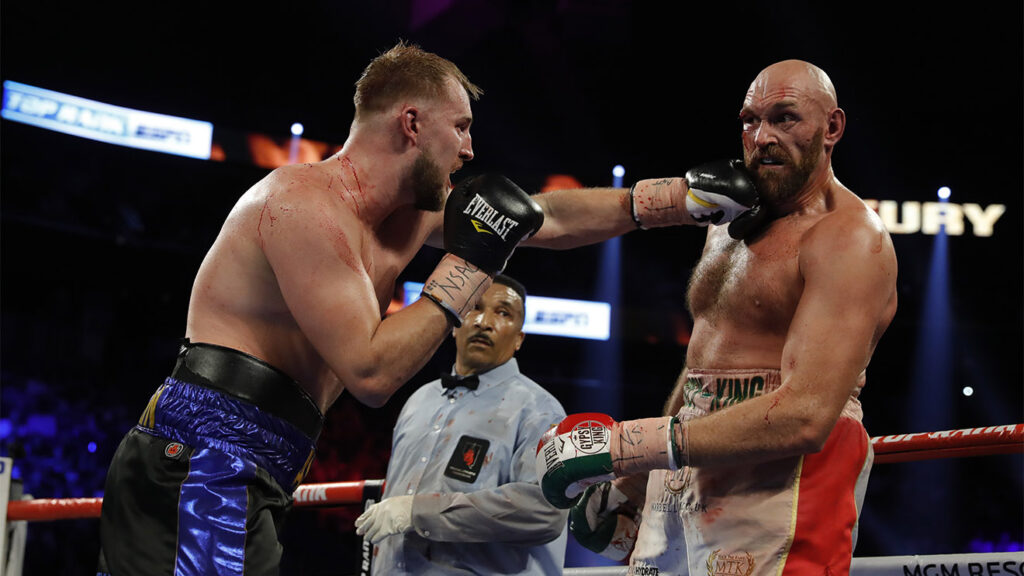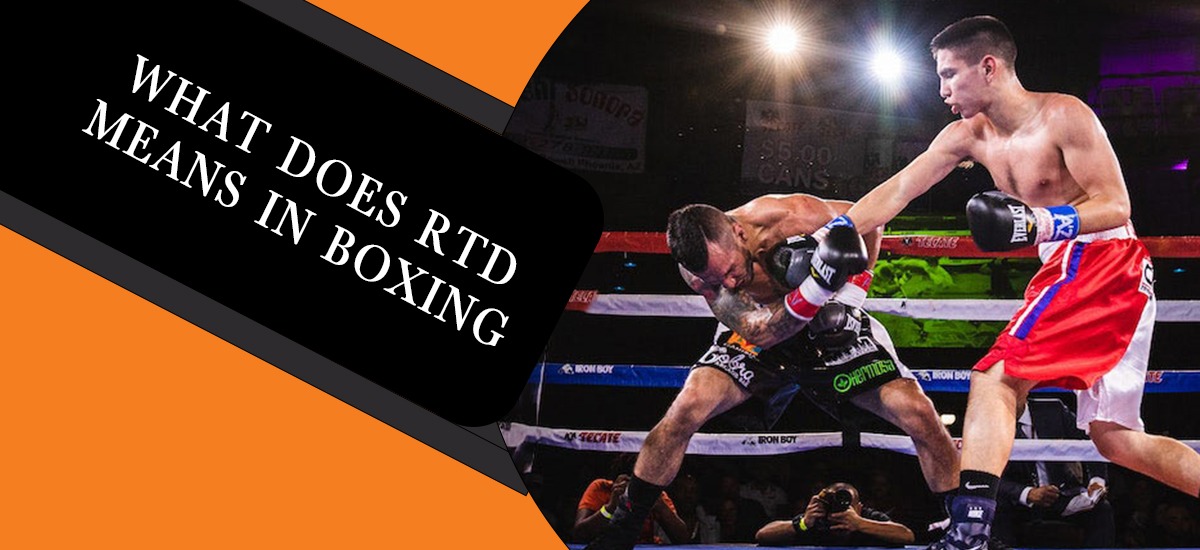In the realm of professional boxing, one term carries immense weight and significance: “RTD,” or Referee Technical Decision. This seemingly simple term holds the power to sway the outcome of a match, potentially shaping the trajectory of a fighter’s career.This can happen for various reasons, including
- Exhaustion
- Inability to defend themselves effectively
- Injuries
What Does RTD In Boxing?
Referee Technical Decision, or RTD Boxing , is a fundamental aspect of boxing. It represents a safety net, a safeguard put in place to protect the fighters from undue harm.
Through the annals of boxing history, there have been incidents that underlined the importance of such a decision-making process. Today, it stands as a critical tool employed by referees to make judicious calls during a match.

Reasons For RTD In Boxing
The circumstances that prompt an RTD call are diverse and intricate. Predominantly, RTD is invoked when a fighter sustains an injury that significantly hampers their ability to continue. These injuries range from superficial cuts and bruises to more severe, potentially life-altering traumas, underscoring the gravity of the decision.
Furthermore, RTD acts as a safeguard against external factors such as a hazardous environment or equipment failure that could potentially endanger a fighter.
Is A RTD Or TKO Is Better?
RTD and TKO victories can be particularly satisfying, depending on the matchup.Distinguishing between RTD and a Technical Knockout (TKO) is crucial.
A TKO is typically declared when a fighter is no longer capable of defending themselves effectively, often due to sustained punishment. In contrast, an RTD is invoked based on the referee’s assessment of the fighter’s condition due to factors other than direct combat.
Other Verdicts Can Conclude Boxing Result
Apart from RTD in Boxing, there are various other verdicts that can conclude a boxing match:
- Split Decision (SD): When judges do not all agree on the winner.
- Majority Decision (MD): When most judges agree on the winner.
- Points (PTS): A decision based on the points awarded by judges for clean hits and effective defense.
- Technical Knockout (TKO): When a fighter can’t continue due to injury or the referee deems them unfit to continue.
- Technical Decision (TD): Similar to RTD, it’s a decision based on circumstances other than direct combat.
- Technical Draw (TD): When a fight ends prematurely due to accidental headbutt or similar situations.
- No Decision (ND) / No Contest (NC): When a match is declared void due to rule violations or other unforeseen circumstances.
The Importance Of RTD
Referee Technical Decision (RTD) holds immense importance in the world of professional boxing for several critical reasons:
Historical Significance
The pages of boxing history are marked by iconic moments where an RTD played a pivotal role. One such instance is the historic clash between Muhammad Ali and Joe Frazier. In this grueling contest, it was an RTD call that ultimately determined the victor, etching this decision into the annals of boxing legacy. These historical moments underscore how RTD decisions have shaped the sport.
Controversies And Disputes
As with any significant decision in sports, RTD rulings have not been without their share of controversies. In the words of Mike Tyson, “Boxing is a sport of split-second decisions. Sometimes, those decisions are met with heated debates.” Instances where the application of an RTD decision led to spirited discussions within the boxing community further highlight the gravity of this judgment call.
Training And Preparation
In anticipation of the potential of an RTD call, fighters and their teams craft meticulous strategies. Trainers and coaches incorporate RTD considerations into a fighter’s game plan, ensuring they are mentally and physically prepared for this possibility. Conditioning and injury prevention become paramount, echoing Floyd Mayweather Jr.’s wise words: “A healthy fighter is a formidable fighter.”
Why Do Boxing Refs Keep Counting?
Boxing referees utilize counting for critical reasons, especially in cases of Referee Technical Decisions (RTD) and Technical Knockouts (TKO):
- Safety of the Fighter: The paramount concern of a boxing referee is the well-being of the fighters. When a boxer is knocked down, whether due to a RTD or a TKO situation, the referee initiates a count.This provides the fallen fighter with an opportunity to recover and demonstrate their ability to continue the match safely.
- Determining Knockdowns and Stoppages: In both RTD and TKO scenarios, counting is fundamental. For a knockdown, the referee counts to see if the fallen fighter can rise within the stipulated time. In a TKO, the referee may start a count if a fighter is unable to defend themselves effectively. This count serves as a crucial element in determining if the fight can continue.
- Preventing Further Injury: In instances where a boxer is seriously hurt or disoriented, the count allows the referee to assess their condition. If the boxer is unable to stand or appears incapable of defending themselves, the referee may decide to stop the fight, prioritizing the fighter’s safety.
- Maintaining Fairness and Upholding Rules: The count, be it in RTD or TKO situations, ensures that both boxers have an equal opportunity to recover or demonstrate their readiness to continue. This practice prevents an unfair advantage for the attacking fighter and aligns with the standardized rules of boxing, promoting fair play and integrity.
- Regaining Composure: Experiencing a knockdown, whether due to an RTD or TKO, can be disorienting and physically jarring. The count provides the downed fighter a brief moment to collect themselves, assess their condition, and decide if they can safely continue the match.
- Decision-Making Authority: The count also provides the referee with a structured framework for making crucial decisions. It allows them to assess the fighter’s condition and make informed judgments regarding their ability to continue.
Overall, counting is a pivotal aspect of a boxing match, ensuring that bouts are conducted safely, fairly, and in accordance with established rules and regulations.
On The Whole
In the grand tapestry of professional boxing, an RTD decision is far more than a technicality. It is a lifeline ensuring the safety of the fighters and maintaining the integrity of the sport.
Related Post:
